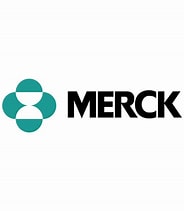A Tweak to Medicare is Good for Merck. But Can It Revive the Stock?
Merck & Co. has found a small reprieve in Washington, but investors remain skeptical that it will meaningfully alter the company’s trajectory. A new tweak to Medicare’s drug price negotiation program could allow Merck to squeeze out more revenue from its blockbuster cancer treatment Keytruda—but whether that’s enough to stop the bleeding in its stock is another matter.
Keytruda’s Central Role and the Patent Cliff
Merck’s reliance on Keytruda is hard to overstate. The immunotherapy drug accounted for roughly half of the company’s revenue in the second quarter of 2025. Yet, the patents protecting its exclusivity in the U.S. expire in December 2028. Analysts widely expect sales to collapse once biosimilar competitors enter the market.
Adding to the challenge, the Inflation Reduction Act of 2022 empowered Medicare to negotiate drug prices starting in 2028. This meant that Keytruda faced a double blow in the same year: cheaper competitors and lower reimbursement rates from the largest U.S. healthcare payer.
A Policy Tweak Buys Time
That timeline shifted last month when President Donald Trump signed a new spending deal delaying Keytruda’s entry into the Medicare negotiation program until 2029. Merck confirmed that it now expects “price-setting beginning in 2029.”
On its own, the one-year delay does little to change the fundamentals. “This is nice, but does not change that fundamental view of our business,” CEO Robert Davis acknowledged on a July investor call. Keytruda revenues will still face sharp declines at the end of 2028 as biosimilars debut.
The Injectable Keytruda Gambit
Merck’s strategy to soften the blow hinges on innovation—specifically, a new injectable version of Keytruda set to launch this fall. Unlike the current intravenous infusion that takes 30 minutes, the injectable form can be administered quickly under the skin.
This convenience factor could give Merck an edge, particularly as biosimilar competitors are limited to intravenous delivery. Merck initially believed this new formulation would be exempt from Medicare’s negotiated pricing. However, the Centers for Medicare and Medicaid Services clarified in May that injectables would be treated the same as the original drug—erasing that advantage.
The recent policy shift opens the door to a different outcome. Since drugs with biosimilar competition are generally exempt from Medicare negotiations, and Keytruda biosimilars are expected by December 2028, it’s possible Medicare may never impose lower prices. If so, the injectable version could escape price cuts entirely, preserving margins longer than expected.
Investor Sentiment and Remaining Headwinds
While this scenario could improve Merck’s outlook, significant uncertainties remain. CMS retains the discretion to impose negotiated prices even if biosimilars exist but fail to materially affect the market. Moreover, competitive dynamics in 2029 are still unpredictable.
Beyond Keytruda, Merck faces other pressures. Sales of its HPV vaccine Gardasil have stumbled in China, dragging on international growth. Meanwhile, critics argue the company’s drug development pipeline lacks depth compared with peers, raising doubts about its long-term growth story.
With shares down about a third since mid-2024, investor pessimism is already priced in. That could set the stage for a rebound if Merck successfully navigates the Keytruda cliff and demonstrates resilience in its pipeline.
Bottom Line
The Medicare tweak gives Merck breathing room, but it does not erase the looming challenges of biosimilars, pricing reforms, and pipeline execution. For now, the policy shift offers a glimmer of hope that the Keytruda cliff may be less severe than feared, but the stock’s recovery depends on whether Merck can turn incremental victories into a sustainable growth strategy.
Interested in MRK day trading ideas? See Merck Keytruda Medicare Delay and MRK Day Trading Opportunity

